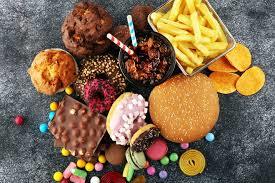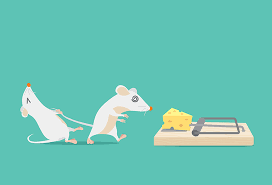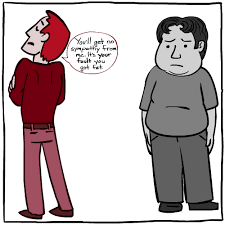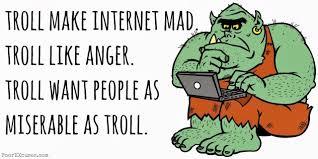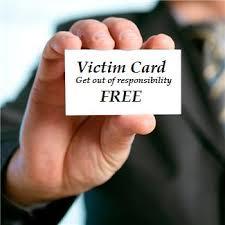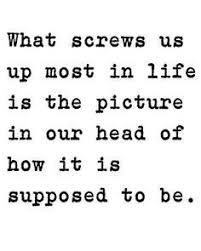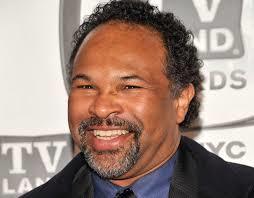Marcia Sirota's Blog, page 27
October 15, 2018
On National Food Day, Let’s Choose to “Eat Real”
National Food Day is coming on October 24. According to the organizers, their goal is to help people “Eat Real,” which they define as “cutting back on sugar drinks, overly salted packaged foods and fatty, factory-farmed meats in favor of vegetables, fruits, whole grains and sustainably raised protein.”
I can get behind this idea and I’m sure that many people can, at least in theory. The problem is that while many of us want to eat healthy, sustainable food, a lot of us don’t have a healthy relationship with food.
For many people, eating is a highly charged subject that goes way beyond nutrition or ecology. There’s an undeniable psychological aspect to eating. Some of us eat to be healthy and to live longer but many of us eat for emotional reasons.
Some people eat to soothe or nurture themselves, using food as a substitute for love and reassurance. They eat “comfort foods” to try and feel better, but studies have shown that eating unhealthy food can make us unhappy as well as physically ill.
James E. Gangwisch and his team from Columbia University published an article in the American Journal of Clinical Nutrition discussing how foods with a high glycemic index (foods that significantly raise your blood sugar) actually contribute to depression.
On the other hand, there are healthy foods we can eat that will improve our mood. The Happiness Diet: Good Mood Food, by Rachel Kelly, is one book that discusses this idea.
Some people are lonely and eat to fill themselves up with a substitute for love; some people are bored and eat to entertain themselves. Some eat to distract themselves from unpleasant emotions or to stuff down anger or shame. Nutrition or sustainability are the last things on their minds.
Most people in North America are surrounded by an abundance of healthy food choices and yet they turn to junk food, fast food, unhealthy food. It’s like they’re unaware of the true nature and purpose of food, to be high-quality fuel for our bodies.
I always ask people who eat poor quality food, if you wouldn’t put crappy gas into your luxury vehicle, why would you put crappy fuel into the one body you get to inhabit for life?
Of course, we’re made to enjoy flavorful food. If we didn’t enjoy it, we wouldn’t want to eat at all and we’d quickly die off. Taking pleasure in food is good because it encourages us to eat regularly, but there’s much more to food than the pleasurable aspect of it. There’s the nutritional component and the environmental aspect of it.
Today we have the option to eat the most healthy, sustainable and delicious food possible, and yet too many of us automatically turn to food that’s bad for our body and worse for the planet. We think that as long as we get an instant rush of pleasure from what we’re eating, that’s all that matters.
I’m convinced, though, that people who indulge in junk food don’t actually enjoy what they’re eating. Maybe they started off liking it but now they’ve just become addicted to all the sugar, fat or salt in it.
Studies have shown that lab rats respond to sugar in the same way as they do to crack cocaine. Sugar, salt and fat are so over-stimulating that our brains respond to them as though they were hard drugs. When we eat any of these foods, we activate the “reward pathway” in our brain that triggers intense pleasure but also powerful, insatiable cravings.
The New York Times reporter Michael Moss talks about how we’ve become addicted to these foods in his book, Salt Sugar Fat: How the Food Giants Hooked Us. And in his book, The End of Overeating: Taking Control of the Insatiable American Appetite, former FDA commissioner Dr. David Kessler talks about how the food industry has combined these three ingredients to keep us constantly craving them.
The major North American food producers have hit on a great idea to maximize their profits. They churn out a multitude of non-nutritious but highly addictive products that our susceptible brains just can’t resist. Instead of eating for health and nutrition, and with a consideration for the planet, we’ve become food junkies, looking for our next sugar, salt or fat “fix” with no regard for the personal or environmental consequences.
The good news is that we can break our cravings for these addictive foods. Just like with hard drugs, we’ll have to go “cold turkey” and completely stop eating them for several weeks until we reset our brains and the cravings for sugar, salt or fat go away.
Eating is also a global issue. I could write a whole series of articles on the inequities of food distribution, the way that we waste tons of food every year and how our current system of farming is so unsustainable. We’re in a position, here in North America, to purchase sustainably raised foods and in so doing make it known to our food producers that this is what we’re going to spend our money on.
We can put our purchasing power to work, in the same way as we’ve done with organic food, and show food producers that sustainable, ethical farming is the new normal. We can only do this, however, if we raise our consciousness about the connection between how food is grown and the health of our planet. Here’s a list from Audubon Magazine of the 10 best sustainable food books.
Today, too many of us eat for emotional/psychological reasons or because we’ve become addicted to sugar, salt, or fat. So how can we focus less on self-soothing, distraction, suppressing our emotions or satisfying insatiable cravings and how can we put our attention on eating for our own well-being and for that of the planet?
Here are four things we can do to change the way we eat and the way we think about food:
Deal directly with our needs and feelings so that we don’t have to use food to deal with them.
Wean ourselves off the foods we’re addicted to and break free of our cravings.
Recognize the powerful effect of good nutrition on our physical and emotional well-being.
Recognize the important relationship between the food that we eat and the health (and survival) of our planet.
According to the organizers, “National Food Day involves some of the country’s most prominent food activists, united by a vision of food that can be healthy, affordable and produced with care for the environment, farm animals and the people who grow, harvest and serve it. “ When we follow the four above recommendations, we can eat in a way that’s good for us and good for the planet.
Sign up here for my free monthly wellness newsletter. November 2018 is all about overcoming overeating and all other addictions.
October 8, 2018
On World Mental Health Day, Let’s Stop the Fat-Shaming
It’s World Mental Health Day on October 10th and as a mental health professional, I want to talk about a topic that deserves a lot more discussion: the topic of fat shaming. Many of us have gotten better about not making racist, sexist, ageist or homophobic remarks but we still think that it’s acceptable to shame the overweight.
Interestingly, this appears to be a reflection, in part, of the fact that we’re a body-obsessed society. Everywhere we look people are promoting the latest exercise craze, fad diet, diet pill or fat-melting technology. But at the same time as we obsess about being thin, more and more of us have become significantly overweight.
Here’s how I see it. We’re all so stressed these days. Life is harder than ever and it’s become increasingly difficult to make ends meet. Many of us work extra-long hours just to keep a roof over our heads and some food on the table. We watch characters on TV enjoying luxurious homes, furniture, clothing, jewelry, hobbies and vacations that we know we’ll never even come close to affording. It’s so frustrating.
We overeat to self-soothe:
One thing that we can always do to alleviate our stress is overeat. We go for the comfort food – carbs, fats and sweets – to soothe ourselves and make us feel full inside. While we’re eating, we feel a sense of pleasure or relief but eventually, the calories add up and the pounds pile on. We start to gain weight.
Online, in magazines and on our TV screens we’re bombarded with images of skinny bodies in scanty clothing. Many of us feel inadequate because we just can’t compete. This encourages us even more to turn to comfort foods. We want to dull that sense of shame for not having the “perfect” body.
We constantly observe how this celebrity or that one has been fat-shamed by some online troll. These anonymous haters think nothing of commenting in the most derogatory manner about another person’s physique and somehow, this has become the new “normal,” even though it causes the person on the receiving end a lot of pain.
At the same time, magazines regularly publish cover stories of celebs and regular folks who’ve lost large amounts of weight. These individuals are celebrated and put up as role models for the rest of us. Their weight loss is lauded as virtuous, the implication being that those of us who remain overweight should feel ashamed.
Sadly, though, all the fat-shaming leads to a desire for more self-soothing, and where will an over-eater turn for soothing? Obviously, they’ll turn to food.
Over-eaters are the obvious addicts in our society:
Over-eaters are easy targets for shaming because unlike almost any other addict, their addiction is no secret to the rest of us. A gambler can hide their addiction; so can a shopaholic. A drug abuser or alcoholic can, at least for a certain period of time, hide the fact of their substance abuse. But over-eaters demonstrate their compulsive behavior by being obviously overweight.
The thing that we need to understand is that an over-eater may have a bigger body but they’re not substantially different from a gambler or an alcoholic.
All addicts are doing the same thing: using their addiction of choice in a misguided attempt to deal with unmet emotional needs and unhealed emotional wounds from their past. They’re also using their addiction as a dysfunctional coping strategy for their present-day hurts, losses and stresses.
Some people think that over-eaters are “out of control,” “lacking in will-power,” or “self-indulgent” but they’re craving comfort food in the same way as a gambler would yearn to play the roulette wheel or a compulsive shopper would have the urge to go on a shopping spree.
“The truth about addiction is that all addicts are coming from the same place and trying to achieve the same goals through their addictions.”
Over-eaters are no more “self-indulgent” than a porn addict, workaholic or a compulsive video game player. As World Mental Health Day approaches, we need to be more understanding of all addicts and instead of shaming the overweight we need to understand that they too are struggling with an addiction.
If addiction is someone’s misguided attempt at addressing their emotional baggage as well as a dysfunctional way to take care of themselves today, we need to offer these individuals support not shame.
We can provide addicts of all types with more functional coping strategies and more successful ways to heal their old emotional wounds and meet their residual needs from a difficult childhood.
If we see someone who is morbidly obese, we shouldn’t consider them as having “less will-power” than the average person. We should see them as having a larger store of unmet emotional needs, some deeper emotional wounds and fewer positive coping strategies for their current challenges.
Addicts are driven by their physiology and their psychology :
Many of us today would recognize a hard-core gambler, alcoholic or drug abuser as someone who is emotionally wounded and in need of our help. We ought to do the same with over-eaters.
Being significantly overweight isn’t a sign of laziness but of emotional distress. When we engage in fat-shaming we cause further distress to individuals who are already emotionally vulnerable.
“Every addict is compelled to indulge in their addiction because of deep, inner yearnings for nurturing, soothing and healing.”
Physiologically, addictive activities trigger the dopamine-mediated “reward pathway” of the brain that causes us to feel pleasure and relief while we’re engaging in the addictive behavior.
Sadly the chemical dopamine also causes us to have further cravings as soon as the particular binge is completed. The more we indulge, the more we crave, which gets us caught up in a vicious circle of addiction.
Our difficulty with quitting isn’t due to a lack of will-power, it’s due to the structure and function of the human brain that drives us to keep repeating the behavior until we can go “cold turkey,” and physically achieve withdrawal (in a sense, resetting the reward pathway) from the addictive substance or activity.
We also have a psychological reason for being compelled to overeat, abuse drugs or compulsively surf the net. Within our psyche we harbor a defense mechanism that I call “pathological hope,” or the powerful but false hope that something – in this case, the addictive behavior – is what will finally bring us real relief from our pain.
The hope is that if this much food, say, hasn’t brought us relief, then more food might. That’s why we’re psychologically driven to keep overeating. We figure that if we just eat “enough” food, it’ll finally do the trick.
“This is a real mental health issue and shouldn’t be relegated to the category of weak will or self-indulgence. It should inspire our concern, not our scorn.”
Fat-shamers hate themselves:
I think that people who like to fat-shame the overweight are acting out of their own self-loathing. I mean, why would someone take the time to write online about another person’s body, or go out of their way to comment negatively about a stranger on the street?
I believe that these fat-shamers hate themselves at least as much as they appear to hate the overweight and I believe that they’re harboring their own secret, shameful addictions. They’re probably so mortified by their own inability to control their urges that they feel compelled to hurt others who more obviously demonstrate a “lack of self-control.”
These fat-shamers need to develop some self-compassion and recognize that whatever addiction they have, it comes from the same inner wounds and needs as those of an overweight person.
Self-compassion is the answer:
With some self-acceptance and self-forgiveness, fat-shamers can start their own process of healing. They can stop hating themselves and start being more empathetic toward those around them who are also beset by uncontrollable urges.
As World Mental Health Day approaches, I encourage everyone to have more compassion toward themselves and to see their own powerful urges to engage in counter-productive behavior as a sign of their emotional wounds and needs, not as a sign of their moral failings.
If we can love ourselves more and find some acceptance for our own propensity for addiction, we’re ultimately going to be kinder to everyone else, and that’s exactly what the world needs more of, these days.
Sign up here for my free monthly wellness newsletter. November 2018 is all about healing from addiction.
September 30, 2018
In the Light of the Kavanaugh Hearings, Let’s Talk About Powerful Men and Sexual Assault
I wrote the article below a few months ago but I feel that I need to re-post it with a few additional comments. Judge Brett Kavanaugh, a Supreme Court nominee, is currently being questioned about his alleged history of sexual assaults on several women and no surprise, the same old comments are being trotted out. It’s the same old BS we hear over and over again when someone, anyone, accuses a powerful, well-connected man of sexual assault.
We hear, “Why didn’t the victim report it to the authorities at the time?” “This person (the alleged victim) has a vendetta against the accused,” “This person is making it all up for political/financial/personal gain,” “This is part of a conspiracy to ruin the (alleged) perpetrator’s life/reputation/political chances.” And so on and so on, ad nauseum.
Really, it’s enough to make me want to vomit. And I have to believe that any sane, reasonable person can see how obvious it is that when even a perfectly credible woman of the deepest integrity accuses a powerful, connected man of sexual assault she will experience a s#%t-storm of retribution and character defamation so virulent that it will act as an almost fool-proof deterrent for everyone else who might wish to come forward with their valid complaints.
On top of this, everything the alleged victim says will be dismissed, contradicted or rationalized away – even if it sounds (and indeed, is) completely credible and reasonable, while everything the alleged perpetrator says will be accepted – even if they appear to be ( and in fact, are) dissembling and their words sound totally false and unreasonable. The double standard is so gross and blatant that it would be laughable, if the stakes weren’t so awfully dire.
Clarence Thomas was unaffected by Anita Hill’s accusations years ago and I doubt that Kavanaugh will be in any way affected by Dr. Ford’s current accusations. The old boy’s network is too strong and the atmosphere in Washington is so incredibly toxic these days that I despair of seeing any justice served.
This article isn’t going to change anything I fear by I have to speak up, if only to register my protest and remind people of exactly why women don’t come forward at the time of their sexual assault and just how toxic and pernicious the system is in successfully silencing the victims, whether before or after they come forth with their accusations.
My article:
After reading Ronan Farrow’s recent article in the New Yorker, entitled Harvey Weinstein’s Army of Spies, I’m filled with great sadness.
In his November 6 article, Mr. Farrow describes how producer Harvey Weinstein “hired private security agencies to collect information on the women and the journalists trying to expose the allegations” of sexual assault toward him. This revelation is horrifying, but it underscores a point I’ve been trying to make for many years.
I’ve been writing about sexual abuse, assault and rape for a long time, including an article in 2015 about societal attitudes toward women who accuse powerful men of sexual assault, as well as one in 2014 about our conspiracy of silence around sexual abuse.
Most recently, I wrote about how men like Harvey Weinstein can’t operate without a group of willing enablers, some of whom act to suppress the stories in the press and some of whom collude by failing to prosecute the offenders.
The point I’ve been trying to make, and that Mr. Farrow’s article drives home so powerfully, is that within our society there are powerful forces in play with the sole aim of shaming and bullying the victims of sexual assault (and those who write about it) into silence.
In his article, Mr. Farrow goes into detail about the agencies Mr. Weinstein hired and the nefarious ways in which they attempted to insinuate themselves into the lives of both the reporters working on these stories as well as the alleged victims of Weinstein’s predation.
Despite their protestations to the contrary, it seems pretty clear that these agencies were hired by Weinstein to suppress any stories about him in the press and to silence his alleged victims.
I’ve been writing for a long time about the way that women’s reputations are dragged through the mud when they make claims of sexual harassment or abuse. The Italian model, Ambra Batillano Gutierrez is a recent example of someone who experienced an assault not only on her body, but on her reputation when she accused Weinstein of sexual assault.
Sadly, there are too many people and too many institutions invested in keeping the victims from coming forward and accusing powerful men of sexual harassment and assault.
In another article by Ronan Farrow about the costs of speaking out about Harvey Weinstein, actress Annabella Sciorra describes how her career tanked after she was raped by Weinstein in the early 1990’s and then soon afterwards, she rebuffed further inappropriate sexual advances by him.
In the article she’s quoted as saying that she didn’t work between 1992 and 1995 and that she heard that there were rumours going around that she was “difficult,” which she believes were due to “the Harvey machine.”
In the same article, actress Daryl Hannah describes how she told colleagues how Weinstein had sexually assaulted her, and that “it didn’t matter.” She said that after she rebuffed his attempts at sexual assault, “I experienced immediate repercussions.”
Hanna goes on to say, “I think that it doesn’t matter if you’re a well-known actress… it doesn’t matter if you report or if you don’t, because we are not believed. We are more than not believed — we are berated and criticized and blamed.”
I can’t underestimate how many times a woman has come to me, describing an incident of sexual harassment at her workplace and when I suggested that she report it at the human resources department, she tells me that she has, and that they did absolutely nothing to help her.
Many women get in trouble for reporting workplace sexual harassment. They receive demotions or are fired, while the person who preyed upon them suffers no consequences whatsoever.
Why is our society like this? Why do so many people want the victims of sexual harassment and abuse to just shut up? I don’t know. It’s not merely misogyny, because the male victims of these crimes are silenced in the same way.
I think that it might have something to do with our bizarre attitudes toward sexual misconduct, in which we tend to want to punish the victim and minimize the perpetrator’s behaviour.
Where do these strange attitudes come from? I can speculate, but I really don’t know. All I do know is that the problem is pervasive.
Michael Fallon, the Defense Secretary, just resigned after admitting to having inappropriately touched a female journalist 15 years ago. All this sexual misconduct has been going on for decades but it’s been kept under wraps, in the typical pattern we’re seeing around sexual abuse, harassment and assault.
In the US Congress, women are sharing their #MeToo stories around their experiences of sexual harassment on the job. In the US tech industry, 60% of women say they’ve experienced sexual harassment in the workplace, according to an article by Kristen Bellstrom in Fortune Magazine.
All of these powerful women have been experiencing this problem for years and years, and yet their complaints have fallen on deaf ears, or these victims felt that there would be no point in complaining, as there’s been no will to address the issue.
Every few years, another story breaks about a wealthy, powerful man accused of sexual assault. In recent years, it’s been Bill Cosby, Jian Ghomeshi and Donald Trump. Today, it’s Harvey Weinstein, a slew of other Hollywood men, and now Supreme Court nominee, Brett Kavanaugh.
Tellingly, it took a male comedian, Hannibal Buress, and over 60 (!!) accusers to finally get Mr. Cosby a jail sentence, and even after calling him a dangerous predator, the judge only gave him a 3-10 year sentence. By the way, people who are convicted of robbing one convenience store get about the same sentence.
We must ask ourselves why it always takes so long for these stories to come to light and how these abusers can carry on over decades, virtually without consequences. We must ask ourselves if we want to keep electing politicians who turn a blind eye to the plight of half the population.
As women, sisters and mothers; as husbands, brothers and fathers, do we want our wives, sisters, daughters, friends and colleagues to have to shut up and take it for another several decades? Or do we want to start speaking up, and start breaking down this wall of silence against the victims who bravely come forward?
The whining and moaning of these powerful men notwithstanding, the only actual conspiracy in place is the one that continues to silence the victims.
It’s a travesty of justice and a disservice to at least half of the human race. And until we stop shaming, blaming, negating and silencing the victims of sexual assault, I despair that nothing will change.
Sign up here for my free monthly wellness newsletter. November 2018 is all about how women can be more empowered in their personal and professional relationships with men.
September 23, 2018
Thanksgiving is Coming But You Don’t Have to Let Yourself Go
Thanksgiving is just around the corner and Canadians are facing the prospect of a huge holiday meal. Soon, a great number of us will be sitting around tables loaded down with an abundance of delicious dishes. For those who are susceptible, the temptation to overeat could be overwhelming.
Not everyone overeats during the holidays but for those who have a problem with food and weight it can be a challenging time. Whenever a holiday approaches, those susceptible individuals start to get stressed. Instead of looking forward to the festivities, over-eaters have come to dread them.
This points us to the question: Why do people overeat during the holidays? There are several reasons. First of all, holidays act like emotional magnifiers, increasing both our positive and negative feelings. For someone who’s prone to emotional stress, the holiday season amplifies that stress.
We should understand that over-eaters are using food in an attempt to cope with uncomfortable emotions, so when they feel stress, they’re more likely to overeat. An over-eater might have been doing well for a while, but an upcoming holiday can upset the balance and send this person into a tailspin.
People can overeat more during the holidays because they’re spending a concentrated period of time with their family of origin. If you’re an over-eater, it’s very often due to the way you were raised. Hurts or losses from childhood can cause emotional wounds which you unconsciously seek to heal or soothe through overindulging in food.
Spending time with those individuals who were responsible for your emotional wounds can cause you distress – the kind that gets you reaching for second and third helpings of holiday foods.
Emotional trauma gets reactivated when a person is reminded of the original circumstances that surrounded it. If you experienced any hurts or losses in your childhood, being around your family of origin is likely to trigger you – at least on an unconscious level – which can then activate your habitual coping strategies. If you’ve had issues with overeating, you’re most likely to turn to food.
Another reason why people overeat at Thanksgiving is that being around their family of origin tends to make a person regress back to the child they once were. You can find yourself falling into the same petty squabbles with your siblings and having the same frustrating conversations with your parents or relatives that you had when you were a kid.
Regression means that the inner child is in the forefront. This is the impulsive, irrational part of your psyche that seeks pleasure or soothing without considering the consequences. It’s easy to let yourself go when the inner child is driving your choices.
When the table is loaded with an abundance of delights your inner child has difficulty with self-control. And even if you never experienced trauma as a child, any aggravation or frustration you’re feeling around your family of origin could send the child to seek comfort through food. Either way, regression equals overindulging.
Another reason for eating too much during the holidays is loneliness. If you’re the only single person in your family, being surrounded by all your married siblings and cousins can make you feel even more alone. If you’ve had issues with overeating in the past, this situation might make you want to overeat even more.
Food is our first source of deep soothing an nurturing. Every infant can be calmed down by giving them a hug and a bottle or their mother’s breast. That’s why even people who aren’t habitual over-eaters are likely turn to food when under stress.
Families can be challenging. Maybe one of your relatives is a braggart or one is a bully; maybe one’s a mean drunk or one is your political opposite and always ready to argue. Even if you’ve had no trauma; even if you don’t regress, the stress of sitting around the table with these difficult people could still make you want to overeat.
No matter what triggers you to overindulge during the holidays, you should know that it’s not inevitable. You can make better choices.
As Thanksgiving approaches, you can stop and think about the triggers that arose for you at previous holiday celebrations. You can choose to take better care of yourself this year.
You can try to sit as far away from the difficult relatives as possible; you can avoid conversations that might upset you and you can even make a plan to periodically take time-outs to be by yourself and just breathe.
You can decide to take one serving of the foods you like and then just stop eating.
You can always step away from the table to calm yourself if things are getting stressful. Most importantly, you can remember that stuffing yourself with more food isn’t going to make you feel better. Real emotional self-care is the only way to go.
Thanksgiving is around the corner and not everyone is looking forward to it. Spending the holidays with your family might be a trigger for overindulging that you’ve come to dread.
Remember that you have options other than just letting yourself go. When you take responsibility for your emotional well-being over the holidays, you’ll be calmer, happier and a lot less likely to overeat.
Sign up here for my free monthly wellness newsletter. October 2018 is all about freedom from overeating and addiction.
September 18, 2018
If We Want Success, We Need to Stop Defining Ourselves by Our Past Trauma
It’s hard to achieve success in life. Most often it takes a lot of work, some degree of talent and sure, a bit of luck. The thing is, not everyone is willing to put in the time and effort required to achieve real and lasting success. Not everyone is willing to put aside the fun and focus squarely on their goals. Many people think that it should be easier to get what they want. For most of us, though, it’s not that easy.
If you know someone who’s unwilling to do what’s necessary in order to achieve a measure of success, you can be sure that at best, they’ll end up with an average sort of existence. And this is where the excuses come in. People will spend an awful lot of energy thinking up reasons for their lack of success. If only they put in half as much energy actually working toward their goals.
Some people want to believe that they were unlucky in life or that someone or something interfered with their success. They’ll look around for who or what they can blame.
Some of these people will look to their past and say, legitimately, that they’re the victim of childhood trauma, or an adult child of alcoholic parents or perhaps a survivor of abuse. The problem, though, is that they’ll use these experiences as excuses not to do the work necessary for their success.
All of these experiences are terrible to be sure and they leave emotional scars, but what they don’t do is absolve a person of their adult responsibility to stand on their own two feet. A person needs to deal with their hurts and losses of the past, but they shouldn’t use these hurts as reasons for not working steadily toward their goals.
When you identify yourself as an “adult child,” “survivor” or “victim,” you’re making an interesting choice. You’re saying that the most significant fact about you is that you’re wounded. You’re defining yourself by the worst things that happened to you in the past.
You could choose to define yourself through your positive attributes, such as “Alice the artist,” or “Joe with the great sense of humor,” or “Rose the brilliant worker,” or “Barry with the huge heart.” When you focus instead on the bad things you lived through, your identity becomes rooted in the negative and it becomes much harder to achieve positive goals.
Maybe these bad things did happen to you in the past, but they’re over now. You didn’t have a choice about what happened to you in childhood but you absolutely have a choice about what you do as an adult and it’s your responsibility to make the best choices possible, moving forward.
A person needs to do whatever it takes to move beyond the hurts and losses of their past. You should work on healing your emotional wounds – perhaps through counseling or therapy – but that doesn’t mean you should hold on to the identity of someone who’s wounded.
After all, do you want to be defined by the bad things you lived through or by all the great things you’ve accomplished and the amazing parts of your personality? I know which version I’d prefer.
When you focus on yourself as a wounded person, your confidence can’t grow; your self-trust can’t develop; your skills can’t evolve. You’re practically dooming yourself to failure. And then when you do fail, you have a built-in excuse: “I’m wounded; I’m a victim of my past.” But who wants an excuse for failure? Wouldn’t you rather put your energy toward learning the tools for success?
Being identified as an “adult child,” a “survivor,” a “victim,” keeps you stuck in a negative conception of yourself. You can’t succeed; you can’t thrive, because that would be contradicting your notion of who you are and what you’re capable of. In this way, your built-in excuse for failure becomes a self-fulfilling prophesy.
The victim-mentality is a no-win psychological defense mechanism. The truth is that you don’t ever need an excuse for your “inevitable” failures, because your failures aren’t inevitable. You need to trust yourself and believe in yourself. You need to give yourself credit for your accomplishments, no matter how small, and you need to forgive yourself for your mistakes and use them as learning experiences.
You need to build skills, gain confidence and see that even though you might have started out with certain disadvantages, through working on yourself you can come out stronger and more self-assured and far more compassionate than those who had it easier than you did.
The victim-mentality has never served anyone. It’s time to see that defining yourself by your past hurts is perpetuating the damage. You’re much, much more than the damaged product of your past hurts.
You need to look more often toward the bright future rather than back at the bleak past. You deserve to see yourself as the amazing, infinitely capable being that you truly are, so that you can be your best self and live your very best life.
Sign up here for my free monthly wellness newsletter. October 2018 is all about freedom from overeating and addiction.
September 14, 2018
What Were the Organizers at TIFF 2018 Thinking?
I was attending TIFF last night and the strangest, most distressing thing happened. It was so unsettling that I was compelled to blog about it. Let me tell you the story.
My friend and I chose to see this particular film because it had been billed as “feminist sci-fi” with a “charismatic female lead.” It was set in a “dystopian future” but promised to have a redemptive quality.
As soon as the film started, it was obvious that this was patently false advertising. The female lead had nearly no dialogue and nothing to do. It really wasn’t clear what her role in the film was.
There was virtually no plot and the film meandered aimlessly from one indecipherable scene to the next, interspersed with scenes of random, horrific violence. It was relentlessly bleak and as the scenes unfolded, it was increasingly painful to watch.
What made matters worse was that this was the film-makers’ first feature film, and they’d been brought to Toronto for the world premiere at TIFF, along with the female lead and several of the male actors. They were brought up to the stage before the film began, right after the TIFF representative had extolled its many virtues. Then they were seated in the audience while the film played.
These young film-makers shared how honored and excited they were to be here, premiering their film at such an auspicious festival. Looking back, it felt akin to lambs being led to the slaughter.
As the film went on, the audience began to trickle out of the theatre. Scene after scene unfolded and more of the audience departed. I couldn’t imagine how badly the film-makers and actors must have been feeling. The word “devastated” comes to mind.
The film had been introduced by one of the biggest big-wigs at TIFF, who had high praise for it but sadly, it didn’t come anywhere close to deserving this praise. The audience gave their opinion of the work by voting with its feet. By the time my friend and I walked out, we were feeling like we couldn’t take one more minute of it, and we imagined that the audience members who’d preceded us must have felt the same way.
I was left with this jumble of emotions: sick to my stomach over the awfulness of the film; tremendously sad for the first-time film-makers who’d been lured to TIFF only to be mortifyingly humiliated by the mass exodus of the audience at their film’s premiere, and furious at the TIFF folks for not knowing any better.
“What were they thinking?” was the thought that kept running through my mind. “How could they have invited these film-makers to Toronto and put them in the awful position of being humiliated in this way?” By the reaction of the audience it was clear to me that my friend and I weren’t the only people who despised this film. How could the TIFF people – who are supposed to know film – not realize what they were doing?
I’m a student of screen-writing so I have some understanding of what a good script requires for it to be compelling to an audience. This film needed editing, so that the scenes had some energy and direction, and most importantly, so that there were moments of revelation for the viewers. There needed to be more action so that the film’s point of view could be clarified and there needed to be more clarity with regard to the relationships of the characters. As it stood, the characters were all just thrown together and their interactions demonstrated very little meaning or purpose. After we left the theatre I had no idea what the film-makers had been trying to say.
This wasn’t a finished film that was ready to be screened, let alone premiered at TIFF. This was a script in progress that should never have been filmed. For so many artists, we suffer from a lack of people who’ll believe in our work. In the case of this film, the filmmakers had the misfortune of too many people seeing something in their work that simply wasn’t there, which then set them up for this horrible humiliation.
It reminded me of the heiress, Florence Foster Jenkins, whose wealth enabled her to perform at important venues when she was in fact, a terrible singer. It wasn’t fair to Florence to let her go up onstage and make a fool of herself. Although obviously TIFF had different motivations than the hangers-on around Ms. Jenkins, it wasn’t fair of the organizers to set up the film-makers in this way either.
The day after the film’s premiere, I’m left wondering what the film-makers are doing. Are they talking amongst themselves about the disaster at their premiere? Are they holed up in their hotel rooms refusing to take any calls? How is the person who introduced the film feeling? Do they regret their decision? Are they taking any responsibility for what they’ve done?
Being an artist is incredibly hard. Screenwriting is one of the most challenging forms of artistic expression. I don’t blame these first-time film-makers for coming up with a mediocre script. I do, however question the judgment of the producer who agreed to finance the film and the TIFF organizers who chose to screen it. The most important thing for any artist’s survival is that they keep on wanting to do their art.
Going through this kind of experience, in which they are so deeply and publicly humiliated, well, I wonder how it’s going to affect the film-makers’ ability to keep on doing their art. And they should keep on. Only next time, they need people around them who won’t let them release their next project until it’s finished and ready to be seen.
Sign up here for my free monthly wellness newsletter. October 2018 is all about freedom from overeating and addiction.
September 12, 2018
When it Comes to Addiction, Celebrities Are Just Like You and Me
These days, everyone has to contend with some degree of stress but for those of us who are susceptible, stress can amplify our tendencies toward bad choices and counterproductive behaviors; most especially, stress can promote addiction.
People who grew up with an abundance of love and nurturing will be a lot less susceptible to stress than those who were raised in chaotic or neglectful environments. Those in the latter group are emotionally vulnerable and far more likely to react negatively to stress.
Many actors, artists and entertainers come from a difficult upbringing. It’s no secret that a lot of people in the arts are mining their past for their creative expression. Pain demands resolution and creativity is one of the best ways to turn life’s lemons into lemonade.
Because they’re more likely to come from a difficult past, artists are more susceptible than the average person to the stresses they face in life. And sadly, the average artist’s life is often extremely stressful.
For any working artist, they must always confront the question of whether they’re “good enough;” they’re always wondering whether people will appreciate their work and they’re never certain whether they’ll continue having opportunities to put their art into the world. Rejection is a constant; failure is just one project away.
The Tormented Psyche:
When we think about all the musicians and actors we’ve lost in the recent past from drug overdoses or substance-related suicide it’s tragic, but not surprising. So many creative people seem to fall into serious addiction.
The business of being an artist puts undue pressure on an already fragile psyche. Just look at the recent examples of musician and producer Mac Miller, who passed away earlier this month from a drug overdose. The singer Demi Lovato is currently in rehab again for substance abuse; the actor Ben Affleck is in rehab for alcohol addiction and performer Mel B is reportedly heading to rehab for substance abuse and sex addiction.
There’s a personality type that’s strongly attracted to drugs and alcohol. I call it the “tormented personality.” These are unhappy people who turn to drugs and alcohol in order to distract themselves from their feelings or numb their pain.
In Hollywood as in the music industry, there’s the reality of constant rejection, the risk of becoming yesterday’s news, and the pressure of whether the next project will be a hit or a bomb. This can create so much anxiety in the artist that it turns into a constant state of torment. Layer this on top of a troubled childhood and you’ve got the ideal circumstances for addiction.
Combined this with the incredibly easy access to drugs and alcohol in the arts – where hangers-on are ever-ready to supply the artist with a wide variety of mind-altering substances – and you can see why alcohol and drug abuse are so common in this field of work.
Demi Lovato’s relapse is a teachable moment, according to recovery advocate and author Ryan Hampton. He recently wrote in the Hollywood Reporter that Lovato’s relapse should underscore the importance of encouraging recovery, especially since Hollywood’s culture tends to encourage addiction.
For the average, un-famous person who’s had a difficult upbringing, stress affects us in exactly the same way as it affects artists and celebrities. A chaotic or neglectful background will make anyone more susceptible to stress and more likely to turn to addiction as a solution. In this stressful world that we inhabit, it’s not only artists, actors and musicians who walk around feeling tormented and inclined to pursue the false comfort of drugs
The tormented personality can be someone with any combination of emotions. The person can feel stressed, anxious, angry, irritable, frustrated, sad, lonely, overwhelmed and/or self-critical. These people desperately want an escape from their pain so they turn to the quick and answers to their problems.
Demi Lovato, Ben Affleck and Mel B. are a lot like you and me when it comes to addiction. Yes, on the surface their lives seem to be fabulous, which is why I can only surmise that it’s some deep, inner torment that’s driving them to keep returning to their addictions. And just like you and me, if these celebrities don’t resolve their inner torment, they’ll be constantly at risk of a relapse.
The answer for celebrity and lay-person alike is to see that there are no easy answers and no quick fixes for their pain. All addicts need to see that whether it’s escaping into drugs, alcohol, gambling, overeating, porn or excessive spending, it’ll only make their problems worse. Instead of constantly defaulting to addiction, every addict needs to explore real ways to ease their torment.
Tools to Overcome Addiction:
Here’s a list of tools that I’ve found to be extremely helpful in overcoming addiction. These tools are effective, no matter how stressed out you are or how tormented you feel.
a) The first tool is to practice being more mindful. You can make some time every day to tune in to yourself and connect with your feelings and needs. When you know how you feel and what you need, you’re set up to go for what you really want.
b) The next tool for overcoming addiction is to face your feelings and work on constructive ways to let go of your pain. There are a lot of great ways to do this and I lay them all out in my book, Emotional Overeating: Know the Triggers, Heal Your Mind and Never Diet Again. This book is super-helpful for over-eaters and for anyone who’s suffering from any type of addiction.
c) The next tool is to work on building yourself up by focusing on self-love and self-compassion and by silencing the inner critic that’s constantly assaulting you with negative self-talk. When you fill yourself up with self-love instead of self-doubt and self-criticism, the torment begins to dissolve.
d) The final tool is to pursue more meaningful relationships and activities – things that will bring you real fulfillment and satisfaction and which will decrease your need to escape into oblivion.
If you practice these tools, it doesn’t matter if you’re a movie star, a pop star or a regular person. You can let go of your torment and finally be free of addiction, once and for all.
Sign up here for my free monthly wellness newsletter. October 2018 is all about freedom from overeating and addiction.
When it Comes to Addiction, Demi, Ben and Mel B. are Just Like You and Me
These days, everyone has to contend with some degree of stress but for those of us who are susceptible, stress can amplify our tendencies toward bad choices and counterproductive behaviors; most especially, stress can promote addiction.
People who grew up with an abundance of love and nurturing will be a lot less susceptible to stress than those who were raised in chaotic or neglectful environments. Those in the latter group are emotionally vulnerable and far more likely to react negatively to stress.
Many actors, artists and entertainers come from a difficult upbringing. It’s no secret that a lot of people in the arts are mining their past for their creative expression. Pain demands resolution and creativity is one of the best ways to turn life’s lemons into lemonade.
Because they’re more likely to come from a difficult past, artists are more susceptible than the average person to the stresses they face in life. And sadly, the average artist’s life is often extremely stressful.
For any working artist, they must always confront the question of whether they’re “good enough;” they’re always wondering whether people will appreciate their work and they’re never certain whether they’ll continue having opportunities to put their art into the world. Rejection is a constant; failure is just one project away.
When we think about all the musicians and actors we’ve lost in the recent past from drug overdoses or substance-related suicide it’s tragic, but not surprising. So many creative people seem to fall into serious addiction.
The business of being an artist puts undue pressure on an already fragile psyche. Just look at the recent examples of musician and producer Mac Miller, who passed away earlier this month from a drug overdose. The singer Demi Lovato is currently in rehab again for substance abuse; the actor Ben Affleck is in rehab for alcohol addiction and performer Mel B is reportedly heading to rehab for substance abuse and sex addiction.
There’s a personality type that’s strongly attracted to drugs and alcohol. I call it the “tormented personality.” These are unhappy people who turn to drugs and alcohol in order to distract themselves from their feelings or numb their pain.
In Hollywood as in the music industry, there’s the reality of constant rejection, the risk of becoming yesterday’s news, and the pressure of whether the next project will be a hit or a bomb. This can create so much anxiety in the artist that it turns into a constant state of torment. Layer this on top of a troubled childhood and you’ve got the ideal circumstances for addiction.
Combined this with the incredibly easy access to drugs and alcohol in the arts – where hangers-on are ever-ready to supply the artist with a wide variety of mind-altering substances – and you can see why alcohol and drug abuse are so common in this field of work.
Demi Lovato’s relapse is a teachable moment, according to recovery advocate and author Ryan Hampton. He recently wrote in the Hollywood Reporter that Lovato’s relapse should underscore the importance of encouraging recovery, especially since Hollywood’s culture tends to encourage addiction.
For the average, un-famous person who’s had a difficult upbringing, stress affects us in exactly the same way as it affects artists and celebrities. A chaotic or neglectful background will make anyone more susceptible to stress and more likely to turn to addiction as a solution. In this stressful world that we inhabit, it’s not only artists, actors and musicians who walk around feeling tormented and inclined to pursue the false comfort of drugs
The tormented personality can be someone with any combination of emotions. The person can feel stressed, anxious, angry, irritable, frustrated, sad, lonely, overwhelmed and/or self-critical. These people desperately want an escape from their pain so they turn to the quick and answers to their problems.
Demi Lovato, Ben Affleck and Mel B. are a lot like you and me when it comes to addiction. Yes, on the surface their lives seem to be fabulous, which is why I can only surmise that it’s some deep, inner torment that’s driving them to keep returning to their addictions. And just like you and me, if these celebrities don’t resolve their inner torment, they’ll be constantly at risk of a relapse.
The answer for celebrity and lay-person alike is to see that there are no easy answers and no quick fixes for their pain. All addicts need to see that whether it’s escaping into drugs, alcohol, gambling, overeating, porn or excessive spending, it’ll only make their problems worse. Instead of constantly defaulting to addiction, every addict needs to explore real ways to ease their torment.
Here’s a list of tools that I’ve found to be extremely helpful in overcoming addiction. These tools are effective, no matter how stressed out you are or how tormented you feel.
The first tool is to practice being more mindful. You can make some time every day to tune in to yourself and connect with your feelings and needs. When you know how you feel and what you need, you’re set up to go for what you really want.
The next tool for overcoming addiction is to face your feelings and work on constructive ways to let go of your pain. There are a lot of great ways to do this and I lay them all out in my book, Emotional Overeating: Know the Triggers, Heal Your Mind and Never Diet Again. This book is super-helpful for over-eaters and for anyone who’s suffering from any type of addiction.
The next tool is to work on building yourself up by focusing on self-love and self-compassion and by silencing the inner critic that’s constantly assaulting you with negative self-talk. When you fill yourself up with self-love instead of self-doubt and self-criticism, the torment begins to dissolve.
The final tool is to pursue more meaningful relationships and activities – things that will bring you real fulfillment and satisfaction and which will decrease your need to escape into oblivion.
If you practice these tools, it doesn’t matter if you’re a movie star, a pop star or a regular person. You can let go of your torment and finally be free of addiction, once and for all.
Sign up here for my free monthly wellness newsletter. October 2018 is all about freedom from overeating and addiction.
September 8, 2018
Geoffrey Owens and the Truth About Being a Working Actor
It’s September and the Toronto International Film Festival is in full swing. Stars have descended en masse upon the city. They’re dressed in gorgeous designer fashions, attending gala premieres and fabulous events. It’s easy to think that the life of the average actor is all glitz and glamour but the reality of a typical actor’s life is about as far from this glowing picture as you could imagine.
One such typical actor is Geoffrey Owens. Thirty years ago he appeared on a hit TV show and since then he’s worked consistently in the business, but never more than for a few weeks each year. This paucity of work is the rule, not the exception for most working actors, by the way. And, like the majority of people in his profession, he’s had to supplement the modest income he’s made from his art with ordinary, non-glamorous work.
It’s a widespread misapprehension that all actors are paid handsomely for everything they do, and that having appeared on a hit show means that even years later, these people will be rolling in dough. The majority of actors, like any other working person, must earn a paycheck every month whether through acting gigs or from other, less glamorous jobs.
Mr. Owens was attending to his ordinary, unglamorous job just the other day, doing his best to support himself and his family. He was bagging groceries at a New Jersey Trader Joe’s never guessing that soon, he’d be at the center of a viral news story. Everything changed for him when a customer by the name of Karma Lawrence took it upon herself to photograph him at his place of work.
Ms. Lawrence then sent the photo to the Daily Mail, which proceeded to run a story about Mr. Owens accompanied by a derogatory headline. Unsurprisingly, Fox News was only too happy to jump on the bandwagon. The intention of these stories was nothing less than to shame Mr. Owens for working at his regular job.
The truth is that in the entertainment industry only a tiny minority of actors see great rewards. The vast majority must deal with miniscule paychecks as well as constant challenges and frustrations. Even those like Mr. Owens, who manage to capture a moment of success, aren’t immune to the ongoing struggles of being part of this profession.
Having been on a hit show is no guarantee that you’ll be on another one. Residuals dry up or fail to cover the basic expenses. In the entertainment industry you find yourself gainfully employed one day and unemployed the next. Seemingly popular shows are cancelled at the drop of a hat. You’re the flavor of the month until the next month comes along and suddenly, nobody knows your name. That’s just the nature of the beast.
Like any other responsible grown-up, Mr. Owens was doing what he had to do in order to support his family. This is something he should be praised for, not vilified. The upshot of the shaming incident is that all the publicity made it impossible for him to keep his job at Trader Joe’s.
Ms. Lawrence now says that she regrets taking the photo and sending it to the press, but it’s easy to apologize after the fact. Ms. Lawrence ought to have taken a moment to consider the possible consequences of her actions.
Mr. Owens was interviewed after the story broke and was quoted as saying that his job “has dignity and worth.” He said that “every job is worthwhile and valuable,” and that “there is no job that is better than another job.” I agree. No reasonable person would dream of insulting any other grocery store employee, or for that matter, any other working person. Why should an actor be shamed for doing an honest day’s work in a different field?
What Ms. Lawrence, the Daily Mail and Fox News didn’t anticipate was the enormity of the backlash they received. All sorts of people came rushing to Mr. Owens’ defense, letting the culprits know that their actions were way out of line. The actor Justine Bateman praised Mr. Owens and had a few choice words for those who attempted to shame him. The director Tyler Perry and the editor Max Weiss spoke up in his defense.
The Daily Mail and Fox News remind me of those horrible kids in high school who stalk the halls every day looking for someone to pick on. The stories they published about Mr. Owens are an example of bullying at its worst. If anyone should be ashamed of themselves it’s these particular members of the media. At least Mr. Owens was engaged in honest, honorable work, which is more than I can say about the Daily Mail and Fox News.
I find it funny how the media will idealize a person who was on a popular TV show or who played professional sports but then they’ll shame this same person for doing a regular job afterwards. After the photo of Mr. Owens was published, Terry Crews tweeted that he’d worked at a job sweeping floors after retiring from the NHL. Crews added that “Good honest work is nothing to be ashamed of.”
Some of the general public seems to be confused about celebrities and entertainers. We put them on a pedestal and assume that they’re all living the glamorous life. When we see them doing a regular job, we’re shocked, but just because they were famous once it doesn’t mean that they were set up for life.
Actors, artists and athletes are all working people, doing their job. If, on occasion, the job is glamorous and high-paying it doesn’t mean that their whole life will be like this. Salon Magazine had a lot to say about our misunderstandings of the artist’s life.
The recent incident with Geoffrey Owens helps us put things in perspective and see that we need to stop making assumptions. And we really need to stop shaming people for doing a less glamorous, less lucrative job if once upon a time they were a professional athlete or appeared on a popular TV show.
Sign up here for my free monthly wellness newsletter. October 2018 is all about freedom from overeating and addiction.
September 5, 2018
The Seven Secrets to Success in 2018
People are always posting articles about the secrets to success, but many of these blogs suffer from a lack of common sense. All those tips for “quick and easy” success are pandering to a segment of the population that wants to do well without having to work for it. Unfortunately, the writers of these blogs are perpetrating a common yet dangerous myth.
Only a tiny proportion of the population is super lucky and everything happens to come easily to them. For the vast majority of us, the first secret to success is that if we want to do well, it’s going to take work.
Here’s my 2018 list of the seven secrets for real and lasting success. Follow these tips and you’ll be well on your way to being your best self and living your best life!
Put in the time and effort. We wish it weren’t the case but there’s no short-cut to success. Even those who are extremely talented will still need to put in the work in order to achieve their goals. The good news is that the more we do, the more skilled we become, so over time we’re bound to perfect our craft, whatever it is. Plus, when things come too easily, we miss out on that feeling of pride and accomplishment. Instead we feel, deep down, like we cheated so we can’t fully enjoy our success. But, when we’ve worked hard for it, success tastes sweet. We feel like we’re put in our best effort and it has paid off. We can enjoy and appreciate the results of all our hard work.
There’s no substitute for self-discipline. Successful people do the work, even when they’re tired, not in the mood, or would rather do just about anything else. This quality really separates the successful people from the not-so-successful ones. Consistent effort over time is what counts; not doing the work only when we’re in the mood to work. When we can buckle down and get it done, even when we’re tired or it isn’t fun, we’re going to reap the greatest rewards.
Silence the inner critic. For many people there’s a voice in our head that’s always ready to put us down, undermine our confidence, criticize our efforts or tell us that nothing short of perfection is acceptable. Unfortunately, that “inner critic” won’t help us succeed. On the contrary; it can demoralize us or even paralyze our efforts. Any successful person will tell you that they don’t have or don’t listen to the negative self-talk. If you want to succeed, you absolutely must do the same.
Always work toward a positive; never away from a negative. I can’t tell you how many times I’ve heard someone say, “I can’t mess up,” or “I can’t fail.” What they need to say instead is “I will succeed,” or “I can do it.” When we try to avoid a negative outcome, we become focused on the negative instead of putting our energy into creating a positive outcome. When we focus on the negative, we inadvertently create the negative. Success is only possible if we focus on the positive.
Attitude is everything. An overly-entitled, spoiled brat who expects everything to be handed to them on a silver platter is not going to get much out of life. The energy we put in is the energy we get out of all our endeavors. A lazy or unmotivated person will never achieve great things. We’ve got to have the right attitude, which is a willingness to sometimes make sacrifices and give up a bit of fun in order to succeed. With our eyes on the prize, we’ll reap the rewards. If all we want to do is party, the only reward will be a hangover and possibly a set of bad habits.
Persevere. Sometimes, there are setbacks. Sometimes, the challenges can seem overwhelming. We need to keep pushing through, no matter how hard it gets. The difference between the successful entrepreneur and the mediocre one is perseverance. The difference between the successful artist and the unsuccessful one is very often perseverance. We can have all the talent and ability in the world but if we give up when the going gets rough, real success will always elude us.
Resilience is key. We can’t allow the difficulties and challenges, failures or losses to stop us in our tracks. We must learn to bounce back from adversity or we’ll never achieve real success. We need to heed the old saying, “When life gives you lemons, make lemonade.” When we mess up, we can use it as a learning opportunity. When we fail, we can use it as an opportunity for growth. Instead of letting the hard times stop us in our tracks we must get up, wipe ourselves off, and keep going forward no matter what.
Sign up here for my free monthly wellness newsletter. October 2018 is all about freedom from overeating and addiction.
Marcia Sirota's Blog
- Marcia Sirota's profile
- 1 follower



